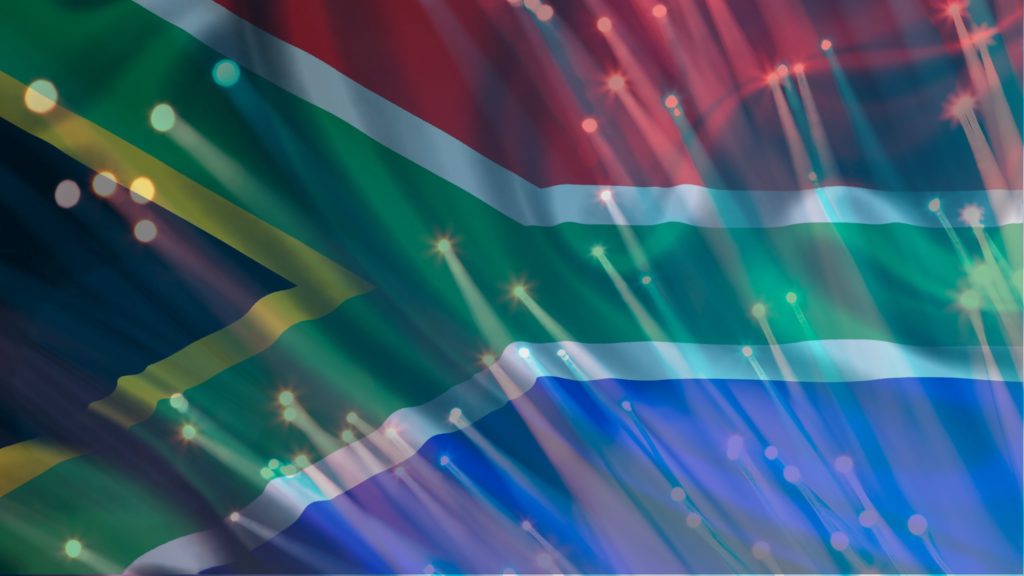Lighting up (Fibre in) South Africa
South Africa truly does shine bright as a world class African country as we continue to rollout, connect, and develop our infrastructure. While being connected and having access to the internet is fast becoming a basic human need there are those that will be without access for a while, that’s not to say that just because there is no fibre at your door, that it is not available to you.
/*! elementor – v3.7.2 – 21-08-2022 */
.elementor-widget-image{text-align:center}.elementor-widget-image a{display:inline-block}.elementor-widget-image a img[src$=”.svg”]{width:48px}.elementor-widget-image img{vertical-align:middle;display:inline-block} 
Depending on whether you are prepared to pay for it or not. As we continue to develop at an admirable rate on all front’s having fibre is a great advantage for many of us as we can now work and play with little hinderance (presumably no caps, Fair Usage Policies, throttling or downtime) at high speeds all day and all night. There are however a few factors to take into consideration as we get connected. To name but a few; Security, Privacy, “What’s the right fibre for me?” Dedicated or Broadband, Service provider Service Level Agreements, Price and of course Speed.
Where to begin
“Let’s start at the very beginning, a very good place to start” – Julie Andrews, The Sound of Music
The pricing of Fibre across SA differs from area to area, company to company and SP to SP, sometimes making it challenging to decide on what will be best for you when discussing it with your neighbours or searching for offerings online, be it for FTTH (Fibre to the Home), Business Broadband or Dedicated Fibre. Each offer comes with its own price tag and with that it is sometimes easy to choose the cheapest one without a second thought. There are a few considerations that need to be taken in the process of establishing what truly is best for your business’s unique needs…
Let’s take a slightly deeper look at a few of these important considerations:
Above all should be the SLA (Service Level Agreement)
- What happens when it goes down? In your SLA the Service Provider will stipulate what their guaranteed uptime is, in addition to their downtime redundancy plan. If ever there is a major outage many providers will have measures in place to ensure minimum downtime for the customer by either having a redundant link or resources available to provide on loan to keep -you- the customer connected.
- How uncapped is uncapped? They will also disclose their cap or FUP (Fair Usage Policy), if there is one, giving a detailed breakdown of throttling based on bandwidth usage /over usage at various intervals and in a worst-case scenario when you will be cut-off.
- What if a technician is required to come out to resolve an issue? The SLA may or may not cover callouts, labour hours and network management costs. These are dependant on whether or not you have opted for a more “premium package” contractual SLA, or a more general Adhoc service plan. In direct relation to this the service turn-around time will range anywhere from same-day service to … sometime, soon, hopefully service.
Given these considerations regarding just the SLA it makes pertinent the importance of considering a few different Service Providers and package offerings before we make the decision to bind ourselves contractually, for whatever term, to any provider.
Getting bang for your buck
It is important to understand your own needs as well as how capable business fibre is before assuming that it is necessary to have a dedicated incredibly high-speed line on the basis that you have a 200Mb FTTH line at home. Before we delve further into how we go about doing a needs analysis it is important to note that just because you pay R1299.00 for your FTTH 200Mbps, it is no way safe to assume that business fibre will be either, in the region of, or anywhere near the same price you pay at home.

Business Fibre is considerably more expensive than the FTTH simply because of the list of guarantees that come with it; high speeds, minimum downtimes, service turnaround times.
Ranging anywhere from R1449.00 to R1945.00 for basic 10Mbps Business Broadband Fibre,
with Dedicated Business 100Mbps Fibre ranging from R5149.00 to R6995.00 and,
all the way to well over the R10 000.00 horizon for dedicated 1Gbps line speeds.
Who’s using it and for what? Here are some Considerations:
- The number of users and devices being connected
- Do you have security and accessibility policies managing your network
- Will it be used for telecommunications
- Off-site and on-site servers
- Video conference users; and
- What type of data are you sharing, downloading, and uploading
If you are a 10-man business that sends emails, uses the phones to contact customers and stores data in the cloud a 20Mbps line will work just fine, while a 50Mbps line will run everything optimally.
On the other hand if you are an enterprise running VPNs, connecting to overseas servers, uploading and downloading large files throughout the course of the day it becomes important to have both a Dedicated Business Fibre line for both privacy and security as well as having network management tools and policies in place that enforce endpoint, user and device restrictions.
How long will it take to get Fibre
Once you have ascertained whether you will be using Broadband Fibre or will be requiring a Dedicated Business Fibre package the timeline from order to activation can span anywhere from a few days to 8-10 weeks, this usually depends on one major factor in the process which is dealing with Municipalities for wayleaves to trench and lay the fibre.

